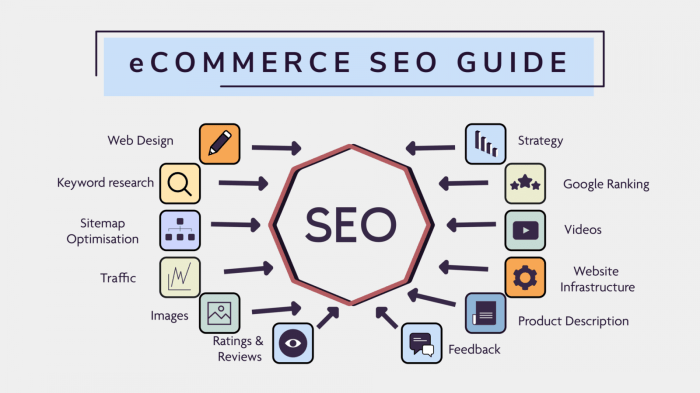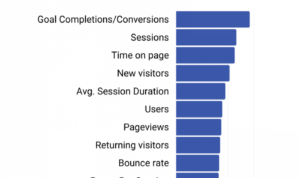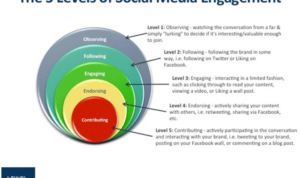E-commerce SEO Basics – Kicking off with E-commerce Basics, get ready to dive into the world of optimizing your online store for search engines. From boosting your visibility to climbing the ranks, this guide has got you covered.
Let’s explore the key elements of on-page and off-page strategies, along with technical tips to supercharge your e-commerce website’s performance.
Introduction to E-commerce Basics: E-commerce SEO Basics
In the world of e-commerce, having a strong strategy is crucial for the success of online businesses. , or Search Engine Optimization, helps e-commerce websites improve their visibility in search engine results, driving more organic traffic to their sites and increasing the chances of converting visitors into customers.
The Importance of for E-commerce Websites
Implementing effective techniques can significantly impact the online presence and profitability of e-commerce businesses. By optimizing their websites for search engines, e-commerce sites can attract more relevant traffic, increase brand awareness, and ultimately boost sales.
How Helps E-commerce Businesses Rank Higher in Search Engine Results, E-commerce SEO Basics
- By using relevant s in product descriptions, titles, and meta tags, e-commerce websites can improve their search engine rankings.
- Creating high-quality content that is valuable to users can enhance the overall user experience and increase the chances of ranking higher in search results.
- Optimizing website loading speed, mobile-friendliness, and user navigation can also contribute to better search engine rankings for e-commerce sites.
Examples of Successful E-commerce Websites with Strong Strategies
Some notable e-commerce websites that have excelled in implementing strong strategies include:
- Amazon: Known for its extensive product listings and effective use of s, Amazon dominates search engine results for a wide range of products.
- Etsy: With a focus on niche markets and unique products, Etsy has successfully leveraged to attract a loyal customer base.
- Sephora: By creating valuable content such as makeup tutorials and product reviews, Sephora has strengthened its presence and increased online sales.
On-Page for E-commerce

In the world of E-commerce, on-page plays a crucial role in driving organic traffic to your website and increasing visibility in search engine results. By optimizing key on-page elements, you can improve your website’s ranking and attract more potential customers.
Key On-Page Elements
- Meta Tags: Meta tags provide search engines with information about your website’s content. Include relevant s in your meta title and description to improve click-through rates.
- Title Tags: Title tags are HTML elements that specify the title of a web page. Use s in your title tags to enhance search engine visibility and attract users.
- Product Descriptions: Optimizing product descriptions with relevant s and unique content can improve search engine rankings and drive more organic traffic to your product pages.
Significance of Optimizing Product Pages
Optimizing product pages for search engines is essential for E-commerce websites to increase visibility and attract potential customers. By implementing on-page strategies, you can improve your website’s ranking, drive organic traffic, and ultimately boost sales and conversions.
Tips for Creating -Friendly URLs
- Include relevant s: Use descriptive s in your URLs to help search engines understand the content of your product pages.
- Avoid unnecessary characters: Keep your URLs clean and concise by eliminating unnecessary characters, numbers, and symbols.
- Use hyphens to separate words: When creating URLs, use hyphens to separate words and make them more readable for both users and search engines.
Off-Page Strategies for E-commerce
When it comes to e-commerce , off-page strategies are crucial for improving your website’s visibility and ranking on search engines. Off-page involves actions taken outside of your website to impact its rankings on search engine results pages (SERPs). Here, we will delve into the role of backlinks in e-commerce , how social media can influence off-page for e-commerce websites, and tips for building a strong backlink profile.
Role of Backlinks in E-commerce
Backlinks play a significant role in e-commerce by serving as a vote of confidence from other websites. Search engines view backlinks as a signal of authority and relevance, which can positively impact your website’s ranking. The quality and quantity of backlinks pointing to your e-commerce site can influence how search engines perceive your site’s credibility and trustworthiness.
Social Media’s Influence on Off-Page
Social media platforms can greatly impact off-page for e-commerce websites. By sharing your website’s content on social media channels, you can increase its visibility and reach a broader audience. Additionally, social media engagement such as likes, shares, and comments can generate backlinks from other users, further boosting your site’s authority and relevance in the eyes of search engines.
Tips for Building a Strong Backlink Profile
Building a strong backlink profile for your e-commerce site is essential for improving its performance. Here are some tips to help you enhance your backlink profile:
- Focus on acquiring backlinks from relevant and authoritative websites in your industry.
- Create high-quality content that is valuable and shareable, making it more likely to attract backlinks naturally.
- Guest post on reputable websites to earn backlinks and establish your site as a trustworthy source of information.
- Monitor your backlink profile regularly and disavow any toxic or spammy backlinks that could harm your site’s reputation.
- Engage with influencers and industry experts to secure backlinks and increase your site’s visibility.
Technical for E-commerce Websites

In the competitive world of e-commerce, having a strong technical foundation is crucial for your website to rank well and attract more organic traffic. Let’s dive into some key aspects of technical specifically tailored for e-commerce websites.
Importance of Site Speed and Mobile-Friendliness
- Site Speed: A fast-loading website is essential for providing a seamless user experience and reducing bounce rates. Search engines like Google also prioritize websites that load quickly, so optimizing your site speed can positively impact your search rankings.
- Mobile-Friendliness: With the increasing use of mobile devices for online shopping, having a mobile-friendly website is no longer optional. Google considers mobile-friendliness as a ranking factor, so ensure your e-commerce site is responsive and optimized for mobile users.
Optimizing Site Structure and Navigation
- Clear Site Structure: Organize your e-commerce website in a logical manner with clear categories, subcategories, and product pages. This not only helps users easily navigate your site but also allows search engines to crawl and index your pages more effectively.
- Internal Linking: Use internal links strategically to connect related pages within your site. This helps distribute link equity, improve user engagement, and enhance the overall performance of your e-commerce website.
Utilizing Schema Markup for E-commerce Products
- Schema Markup: By implementing schema markup, you can provide search engines with additional context about your e-commerce products. This rich snippet data can enhance your product listings in search results, making them more visually appealing and informative to potential customers.
- Product Schema: Use specific schema markup for e-commerce products, such as Product, AggregateRating, and Offer schema types. This structured data helps search engines understand the details of your products and can lead to higher visibility in search results.





